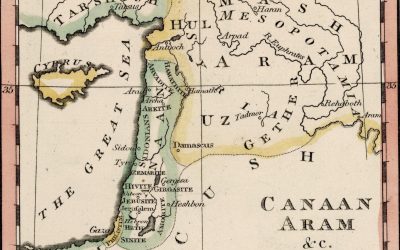The Canaanites were an ancient Semitic-speaking people who lived in the region known as Canaan, which encompasses modern-day Israel, Palestine, Lebanon, and parts of Syria and Jordan. This region was known for its strategic location at the crossroads of Africa, Asia, and Europe, making it a melting pot of cultures, trade, and conflict throughout ancient history. The Canaanites played a significant role in the history of the ancient Near East from the late Bronze Age (around 3300 BCE) through to the early Iron Age (around 1200 BCE).
Culture and society
The Canaanites were not a single, unified nation but a group of city-states (such as Ugarit, Tyre, Sidon, and Byblos), each with its own king, deities, and administrative systems. These city-states often formed alliances or fought against each other, as well as against external invaders. The Canaanites are credited with significant contributions to art, architecture, and religion, with their pantheon of gods (like Baal, Asherah, and El) influencing neighbouring cultures, including the Israelites.
Language and writing
The Canaanites spoke Canaanite languages, a group within the Northwest Semitic languages, which includes Hebrew and Phoenician. They used a script that is a direct ancestor of the Phoenician alphabet, which is the ancestor of most modern alphabets, including Greek and Latin. This writing system represented a significant advancement in the history of writing due to its efficiency and simplicity compared to cuneiform and hieroglyphic scripts.
Economy and trade
Canaan was a fertile region that supported agriculture, but its location also made it a hub for trade. The Canaanites were renowned seafarers, particularly the Phoenicians, who emerged from Canaanite civilization. They established trade networks throughout the Mediterranean, trading goods such as wine, olive oil, cedarwood, and purple dye (made from the murex snail and highly valued in antiquity).
Religious influence
Canaanite religion had a profound impact on the religious landscape of the ancient Near East. Their myths, rituals, and deities influenced the religious practices of their neighbours. The Hebrew Bible, for example, contains numerous references to Canaanite gods and practices, reflecting the close interaction between the Israelites and Canaanites.
Decline and legacy
The Canaanite city-states gradually came under the influence or control of emerging powers, such as the Ancient Egyptians, the Hittites, and later the Assyrians, Babylonians, and Persians. Many Canaanites were assimilated into these cultures, but their legacy lived on through their contributions to language, religion, and trade networks. The Phoenicians, considered descendants of the Canaanites, continued to spread their influence across the Mediterranean, founding colonies such as Carthage, which would become a major power in its own right.
The term “Canaanite” is sometimes used in historical and archaeological contexts to refer to the cultures and peoples of the Canaan region. In contrast, in biblical contexts, it often refers to the non-Israelite inhabitants of the Land of Canaan. Despite the eventual decline of Canaanite city-states, their cultural and technological innovations had a lasting impact on the development of Western civilization.






Leave a Reply